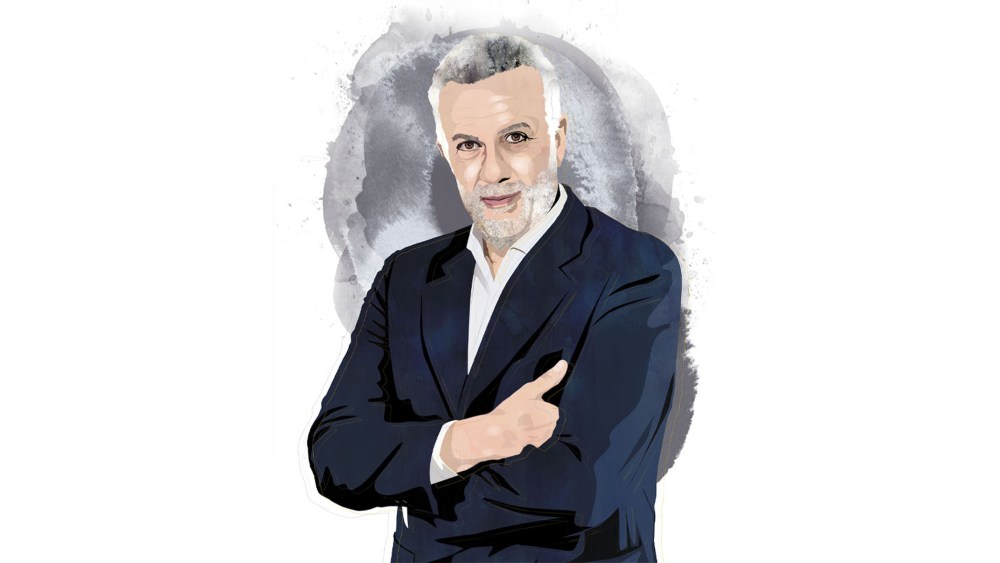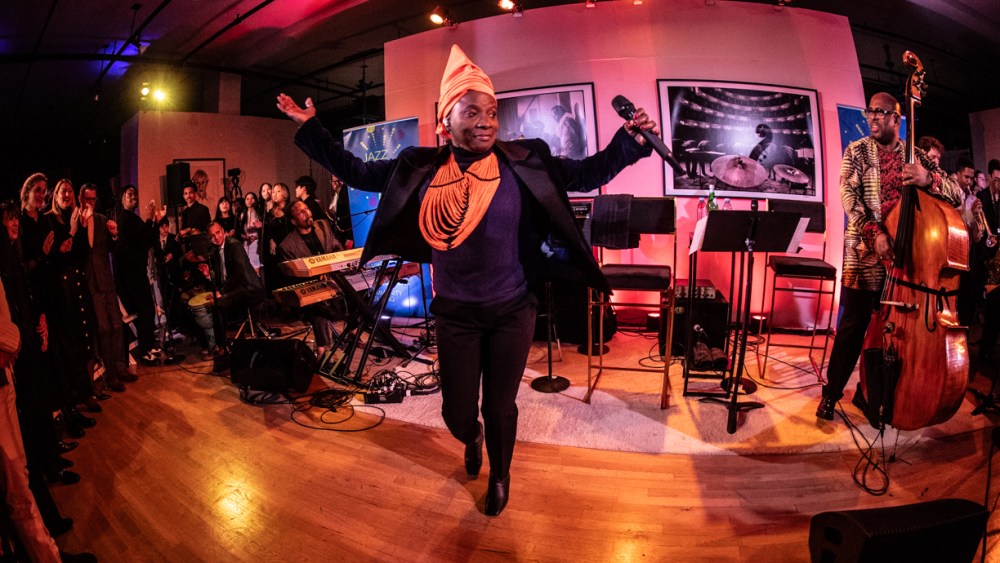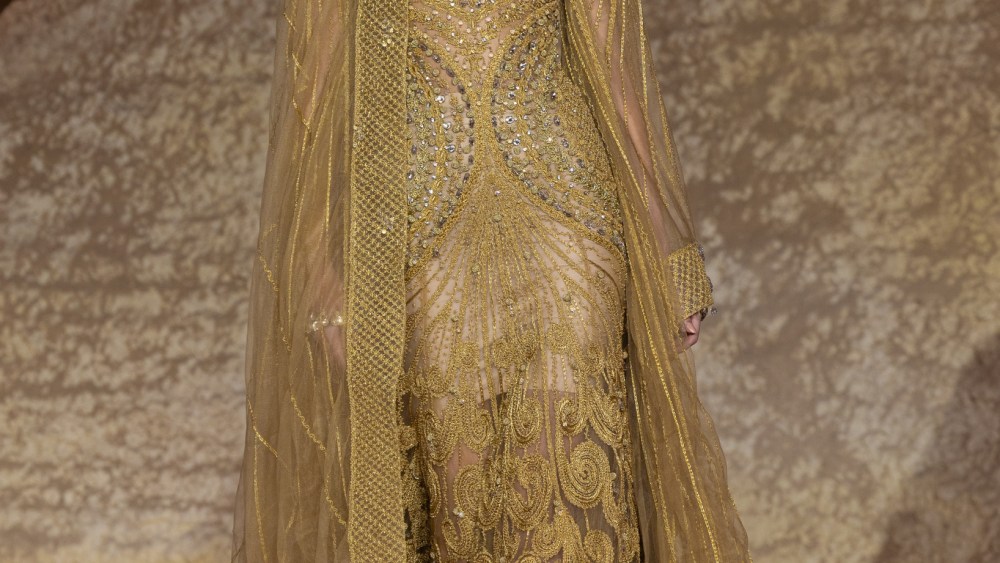The fragrance business is blowing up, but Interparfums Inc. is hardly a flash in the pan.
Rather, this year’s recipient of the WWD Honor for Public Beauty Company was founded in 1983, went public five years later, and has grown to hit $1.45 billion in net sales in 2024. And though it’s one of the strongest beneficiaries of the fragrance wave — it was merely at $539 million in net sales in 2020 — chairman, chief executive officer and cofounder Jean Madar has been methodical in building the business, prioritizing creativity and boutique approaches with behemoth licensors.
Related Articles
“The company is in a good position because our products on each side of the spectrum are doing well,” Madar said. “It’s a nice growth, but we don’t look at that when we look at the company. It’s about the brands that are doing well.”
Indeed, Madar has been snapping up licenses — from an extension of Coach’s fragrance license to the recent inkings of ones with Off-White and Longchamp — but also has driven the acquisition of Goutal and the launch of an in-house brand called Solférino. They’re all playing a pivotal role beyond the company’s cash cows.
“We have been quite busy building the future, because what’s important for us is where the company is going to be in three to five years from now,” he said. “And we want to pass the $2 billion mark.”
In the first six months of 2025, the key pillars were still going strong, according to the company’s investor presentation. Coach, for example, topped $116 million in revenues in the period. Jimmy Choo, Montblanc and Guess respectively hit $114 million, $102 million and $67 million. Of the newer entrants, Lacoste reached $57 million and Donna Karan and DKNY reached $41 million.
“We grow by having the right level of innovation for the existing brands and adding new brands. For existing ones, we have blockbusters every 18 to 24 months, which is a very high sequence,” Madar said. “It’s demanding because we need to come up with new concepts, we need to take them to new territories, and we need to find the right spot for each of the brands we have in the portfolio. And we have more than 20.”
He’s still on the hunt for new licenses, though. “We’re going to continue, either with people that are not in the fragrance business today, don’t have a license yet, or people that have a fragrance license with another company but maybe want a change. It’s a multipronged growth.”
Madar defines Interparfums as a “40-year-old start-up,” given the level of agility that strategy warrants.
“We think the only danger is to not take risks. There is a danger in staying in your comfort zone and we will be pushing the barriers. We will be looking at alternative distribution — we are one of the first to work with Amazon Beauty, and we have a fantastic business with TikTok — and each of the brands benefits from this spirit.”
Case in point: Donna Karan’s Cashmere Mist deodorant alone sells nearly 1 million units annually. “That’s the legacy that our brands have associated with new forms of development, and they’re key to this success,” Madar said.
Working in lockstep with licensors and creative partners is also key, so much so that when Interparfums picked up the Ferragamo fragrance license, it built an office in Florence to service the business. Other existing offices are in Paris and New York.
“Today, we have 70 people in Florence. We’ve doubled the size of the office,” Madar said. “We have a motivated team across market, production and operations. They handle Ferragamo and Cavalli, which is new, and they will be able to handle more.”
Madar personally travels to Florence on a monthly basis, and has for the last three years. “They are totally integrated and they understand our vision in totality,” he said.
And although he thinks all of the offices can accommodate more brands, he says no more often than yes to new business.
“We receive almost one proposal every week,” he said. “We have to say whether or not the name recognition is there, where we think the potential is. Our job is to edit ideas, and we evaluate. I’ve been in this business for 40 years with [cofounder] Philippe Benacin, and it’s not that we know everything for a fact, but we have guts and these types of decisions about taking a brand come from the gut.”
That instinct guided Madar away from celebrity fragrances in their heyday. “We didn’t like the model of starting in department stores and six months later, being in Walmart. But today, the business has changed,” he said. “You see the success of some celebrities doing so well at Sephora, but maybe now we’ll come to understand it better. We may be coming with some interesting celebrities soon.”
Distribution is undergoing its own shifts, particularly with the pandemic-induced digital boom that’s stuck. “It’s still amazing how people can buy a fragrance they can’t smell,” Madar said. “We spent millions and millions of dollars on department stores, testers, vials, beauty advisers. And here on Amazon and TikTok, nobody can smell. So what are they buying? They buy a story, they buy a description, they buy emotion.”
More than 50 percent of the company’s sales in China are happening online, and he sees the U.S., India, certain European markets and the Middle East following suit. “From Amazon Beauty to the fragrance counter, they are all here to buy more than one fragrance,” he said of the fragrance consumer. “There are a lot of new habits in the U.S., we see people buying three or four different juices per year.
“The future of our business lies in the answer to this equation: what do people want, do they know what they want? A lot of our great successes came effectively by accident,” Madar said. “Who would have thought gourmands would take the market by storm? We have to challenge ourselves, forget consumer testing, because with that, we’ll never make a great success. We know we have to go with gut.”



